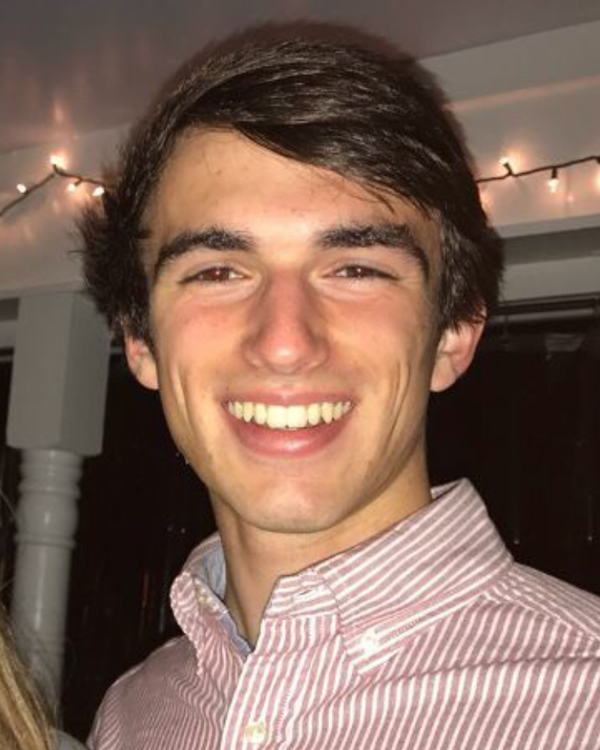
Dylan Meyer is a music and electrical engineering double major from Madison, AL. After graduation, he hopes to work in either the space or precision timing industry.
How did you choose your major? What sparked your interest in the field?
I decided to go into electrical engineering for several reasons. Living near Huntsville, Alabama, NASA and the MDA are a huge part of the area’s culture. As a result, engineering is a highly encouraging field to pursue, and looking back it always seemed to be the path that I would eventually take. In high school, I took a physics class related to electricity and magnetism. I found the experience very interesting and enjoyable and decided to specifically major in electrical engineering.
For music, that has always been a passion of mine, and I knew I wanted to learn more about it and participate actively in ensembles and studios in college. That is actually what attracted me specifically to the University, our (French) horn performance program run by Skip Snead, a world-class player and educator.
What do you like most about studying engineering and music at UA?
My favorite thing about studying my major here at UA is the great professors. They all have been very supportive and genuinely want the students to learn and understand the concepts, not just pass a test. That sort of investment in the student body seems to really pay off in the long term and transcends checking boxes towards a degree.
What are your career goals?
Right now, career goals are still vague for me. I would like to either work in the precision timing industry, the space industry, or both. I find the field of precision timing (the creation of stable and accurate clocks and timescales) to be extremely fascinating and would love to contribute something meaningful to the field.
Talk about any career-related experiences you’ve had? How did you find these opportunities?
Last summer I worked at Dynetics, a subsidiary of Leidos, in the unmanned aerial systems department. That was a great opportunity to learn about the industry and see what I needed to focus on in my future studies. However, I think my most beneficial experience in college has been with the Hauser lab in the physics department and at Microchip. My time with these two groups has consisted of studying and researching atomic clocks and precision timing.
I stumbled on this area quite by accident. I had recently been gifted a watch and was fascinated by how it kept the time with its many gears and springs. I also have always been interested in NASA and space exploration, so when Dr. Freeborn (a professor of mine) sent out an email telling us that Jamie McKelvy, an engineer now at NASA JPL who works on atomic clocks, was giving a presentation on his work at JPL with atomic clocks, I decided to check it out.
From there, I joined the club SUPER-HAM (Students Undertaking Physics and Engineering Research on Hydrogen Atomic Masers). In the Hauser lab and SUPER-HAM, a group of students and I are currently trying to refurbish an old Hydrogen Maser (a highly stable atomic clock) and create UA’s own radio interferometry array based on the H1 line. As a member of this club, I met Bryan Owings, the head engineer of Microchip’s Hydrogen Maser group, and he asked if I was able to assist him and his team members in the production of the newest MHM Hydrogen Maser.
At Microchip, I work in the physics laboratory helping in the construction of several physical apparatuses including solenoids for the production of DC magnetic fields in the Maser, the vacion system, and control PCB installation and soldering. Through the Hauser lab, SUPER-HAM, and Microchip, I have learned tons. I’ve been exposed to everything from how to leak check a vacuum valve to the various types of electronic noise and how they interfere in high precision clock signals, and I am learning more every day.
What surprised you the most about college?
The thing that surprised me most about college is probably the variety of choices available. There are tons of choices of where and how to spend your time, what to study, what to believe, and what to value as important and meaningful. It is a smorgasbord of opportunity, with tons of variety. I think the implications are both exciting and terrifying. It seems to be both a place to make mistakes and learn while setting up a general future trajectory. It is definitely not just a place to get a degree, it is a place to learn life a little bit at a time as well.
How did you make friends and find community on campus?
I think the key to me finding a community on campus is being invested and participating in organizations that I am genuinely interested in. This serves as a sort of starting point in meeting people and forming relationships. This also allows for common experiences between individuals, serving as a shared lens of perspective that can be grown and expanded upon.
What advice would you give to incoming students?
“Habits maketh the man”. Probably the best advice I have ever heard, and probably the one that has stayed relevant throughout my time here in college. Essentially, where and how you regularly spend your time shapes you and shows your priorities better than anything that can be said or argued. How I have felt about my life and general college experience has always been decided by my habits, so there must be something to that saying.